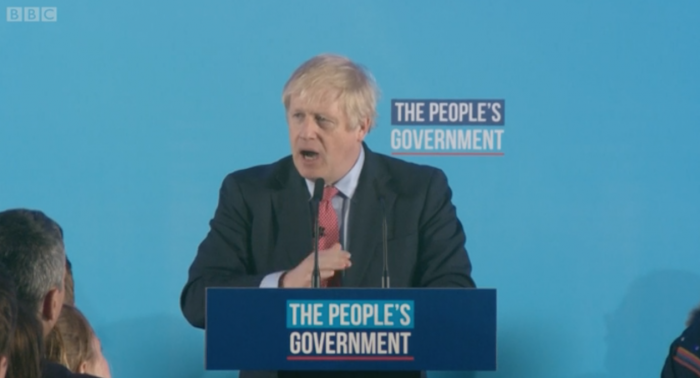Industry leaders have stressed that the Brexit uncertainty has not ended with Boris Johnson’s emphatic election victory.
Mr Johnson will govern with a majority of nearly 80, after a stunning night for the Conservatives ended with the Party’s best election result since 1987. The result means Mr Johnson will deliver on his promise to ‘get Brexit done’ by January 31, paving the way for a transition period until the end of 2020. But there is concern about what might come after that.
NPA chief executive Zoe Davies said the emphatic Conservative victory will end the short-term uncertainty over Brexit.
“The clear outcome means that we now have some certainty for the next 12 months. We will leave the EU on January 31, with a transition period where little will change until the end of 2020.
“However, our longer-term concerns remain about what happens after that date in terms of our future trading relations with the EU, the terms of future trade deals with non-EU countries and access to EU labour.
“We will also continue to make the case for a future agriculture policy that supports productive farming and offers incentives to farmers to maintain and improve our pig health and welfare standards and meet the environmental challenges in front of us.
“We will also stress the need for proportionate regulation, including resisting any attempts to ban farrowing crates.”
One rare black spot for the Conservatives on an otherwise victorious night was the failure of Defra Minister Zac Goldsmith to retain his Richmond seat.
“We await to see the make-up of the new Defra team and look forward to working with them,” Zoe said.
NFU President Minette Batters said: “In our own election manifesto, we raised a number of crucial issues we need the new government to address now, to ensure British food production has a sustainable and ambitious future.
“Top of that list is Brexit. It’s imperative we secure a future trade deal with the EU that is as free and frictionless as possible, avoiding the damaging spectre of trading with our largest partner on WTO terms. Alongside this, our future trade policy mustn’t allow imports of food produced to standards that would be illegal to produce here.
“The UK could embark on its first trade negotiations for decades in just 50 days’ time – the government must set up a Trade and Standards Commission as a matter of urgency so that they can work with industry and stakeholders to ensure those negotiations do not allow the high standards which are the hallmark of UK farming to be undermined by imported food which would fail to meet our own domestic regulations and values surrounding animal welfare, environmental standards and traceability.
“We live in a country that has some of the highest animal welfare, environmental and food safety standards in the world, all the while providing the British public with the third most affordable food on the planet, and at the same time maintaining and enhancing the iconic British landscape. That’s why the public trusts and supports British farmers.
“Government needs to act to ensure guaranteed access to a skilled and competent workforce; develop a framework for a more competitive and sustainable farming industry; put in place a long-term food strategy; and place science at the heart of policy making. This will allow farming businesses to continue doing what they do best – provide safe, traceable and affordable food for the nation.”
Country Land and Business Association President Mark Bridgeman said: “Many will breathe a sigh of relief that this result at least brings a degree of political certainty. But for all the claims of ‘getting Brexit done’ the idea that Brexit ends on 31st January is wrong.
“Assuming we leave the EU next month, we will have less than a year to negotiate a Free Trade Agreement with Europe or else once again No Deal is back on the table. This timeframe is hugely optimistic.
“Never forget though the extent to which European agriculture needs a deal with the UK – the EU runs a £20bn agriculture trade surplus with the UK, and a traded goods surplus of almost £100bn. The idea that the EU can shrug off a dramatically reduced trade relationship with the UK is naïve. With a stable government in place, at least the Prime Minister can negotiate with a greater degree of strength than before the election.
“We will do what we can to help Government negotiate comprehensive agreements not just with the EU but across the world. But Government needs to earn the trust of rural communities by guaranteeing that UK farmers will not be undercut by cheap imports produced to lower standards.”
Food and Drink Federation chief operating officer, Tim Rycroft, said: “We congratulate the Prime Minister and his Government on the result of the General Election 2019. For too long, business has been mired in a sea of political uncertainty, hitting investment, productivity and long-term growth.
“As the UK’s largest manufacturing sector, food and drink is part of the UK’s critical national infrastructure and essential to national security. The nation’s £31.1 billion industry employs over 450,000 people with a footprint in every community.
“UK food and drink is a national success story. As set out in our manifesto, we want to work in partnership with the Government to reach our full potential as the most dynamic, sustainable, resilient and competitive industry, by boosting exports, developing talent and encouraging innovation.”




